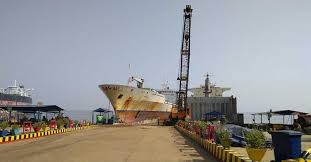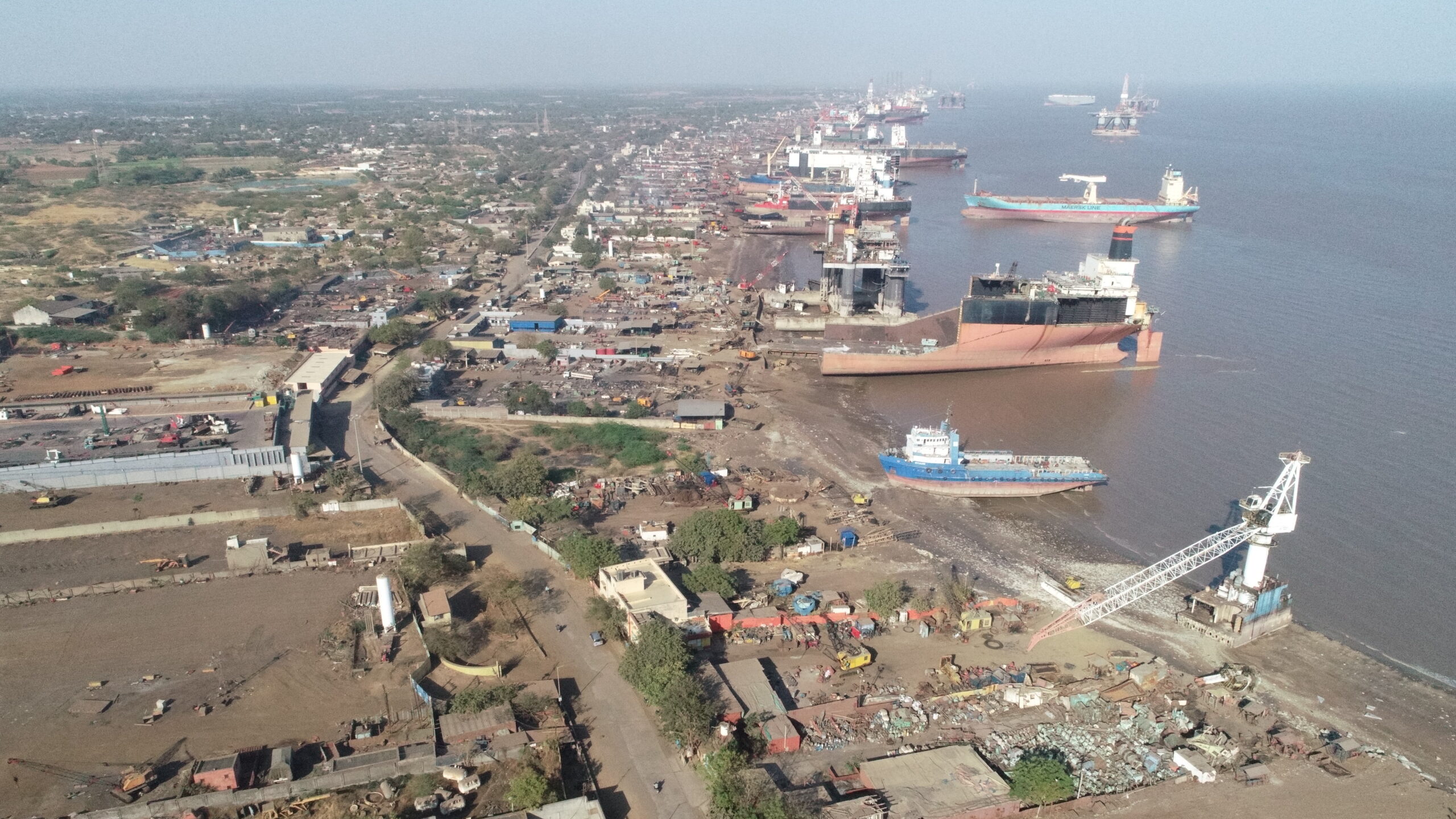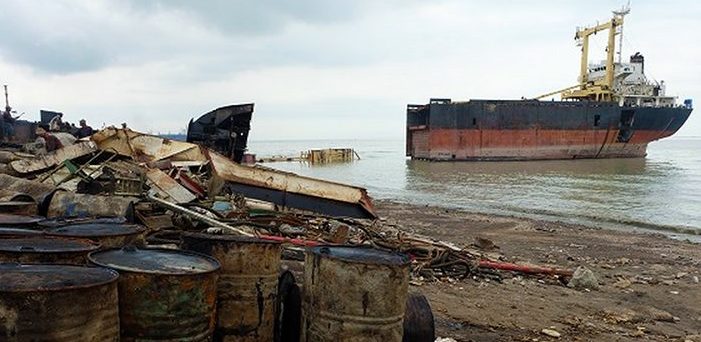Maharashtra Charts New Course with India’s First Shipbuilding and Recycling Policy
Maharashtra has taken a decisive step towards positioning itself as a major player in the global maritime economy by becoming the first state in India to approve a dedicated policy for shipbuilding, ship repair, and ship recycling. The state cabinet, led by the Mahayuti government, cleared the Shipbuilding, Ship Repair and Ship Recycling Policy, 2025, on April 29, marking a turning point in India’s maritime industrial ambitions.

The approval is more than just a bureaucratic exercise. For Maharashtra, which has a coastline stretching 720 kilometers across Palghar, Thane, Mumbai city and suburbs, Raigad, Ratnagiri, and Sindhudurg, the new policy represents an opportunity to leverage geography for economic growth, job creation, and strategic advancement. The state has long had natural advantages owing to its ports and shipyards, but these have often been overshadowed by the prominence of Gujarat’s Alang—the world’s largest ship-breaking yard. Now, Maharashtra is signaling that it wants to be more than a secondary player.
Ports and Fisheries Minister Nitesh Rane, who has been championing the policy, made it clear that the state has set ambitious targets. By 2030, the government expects the sector to draw investments worth ₹6,600 crore and create around 40,000 jobs. Looking further ahead, the roadmap for 2047 envisions investments of up to ₹18,000 crore, accompanied by an estimated 3.3 lakh jobs. “We have formulated the policy with a long-term vision,” Rane explained. “Our aim is not just to attract investment but also to create an ecosystem that trains and employs youth, builds modern infrastructure, and helps Maharashtra claim its rightful share in this global industry.”
The state government is banking on the Maharashtra Maritime Board to play a pivotal role in implementing the policy. The board will not only oversee the projects but will also invest in basic infrastructure such as roads and provide capital subsidies to encourage private participation. Skill development is another key component, with a focus on training young workers to handle modern shipbuilding, repair, and recycling processes.
At present, India accounts for only about 1 percent of the global shipbuilding business, which is estimated at a massive $70 billion (₹5.9 lakh crore). China commands half the global market, followed by South Korea at 28 percent and Japan at 15 percent. Ship repair, a $12 billion (₹1.01 lakh crore) market globally, is similarly concentrated in countries like China, Singapore, Bahrain, and Dubai. India, despite being rich in trained maritime manpower, has barely scratched the surface in this segment.
Rane noted that India has proven strength in ship recycling, ranking second in the world, but faces increasing competition from Bangladesh and Pakistan, where higher yields and looser regulations have attracted business away from Indian yards. “Alang has been the center of ship-breaking for decades,” he said, “but we want to ensure that Maharashtra also becomes a hub, accounting for a third of India’s recycling business in the coming years.”
The mention of Alang is significant. Located in Gujarat, Alang is synonymous with ship-breaking and has dominated the industry not just in India but globally. However, as ships become larger and environmental compliance rules tighten, there is room for alternative centers to emerge. Maharashtra hopes to capitalize on this shift, offering investors a policy framework backed by subsidies, infrastructure, and workforce training.
Industry observers say the competition with Alang could redefine India’s ship recycling landscape. If Maharashtra succeeds, it would not only challenge Alang’s dominance but also reduce the state’s dependence on other industries by creating a parallel maritime economy. This would be especially crucial for coastal districts like Ratnagiri and Sindhudurg, where employment opportunities outside agriculture and fisheries are limited.
Beyond economics, there are strategic angles to the policy. A strong shipbuilding and repair ecosystem gives India, and Maharashtra in particular, greater control over its maritime assets. The Indian Ocean region has become a theater of global contestation, with China, the United States, and regional powers like Japan and South Korea vying for influence. For India, developing indigenous shipbuilding capabilities is not just a matter of commerce but of national security.
Currently, India relies heavily on foreign-built ships, and maintenance often involves sending vessels abroad. By strengthening domestic ship repair infrastructure, Maharashtra could help reduce dependence on foreign facilities. This aligns with the central government’s broader vision under Maritime India Vision 2030 and the Maritime Amrit Kaal Vision 2047, which call for self-reliance in the maritime sector.
While the policy announcement has generated optimism, the road ahead is not without challenges. Shipbuilding is a capital-intensive industry, requiring advanced technology, skilled labor, and a reliable supply chain of steel and components. Competing with China, South Korea, and Japan—countries that have decades of expertise and government-backed shipbuilding giants—will not be easy.
Similarly, the ship-repair sector demands world-class dry docks, efficient logistics, and quick turnaround times. For Maharashtra to become competitive, it must invest heavily in modern facilities and ensure streamlined regulatory processes. Environmental compliance is another sensitive area, particularly in ship recycling, which has often attracted criticism for unsafe working conditions and ecological damage. The state will need to enforce strict standards if it hopes to attract global clients who are increasingly sensitive to sustainability concerns.
Despite these hurdles, maritime experts believe Maharashtra’s decision to formalize a policy is a bold and necessary move. “India cannot afford to remain on the fringes of the global shipbuilding and repair market,” said a senior official from the shipping industry. “By putting a policy in place, Maharashtra is showing intent. Now it has to follow through with execution.”
The scale of job creation envisioned also underscores the potential socio-economic impact. With coastal districts often struggling to generate non-farm employment, the creation of thousands of jobs in shipyards, repair facilities, and ancillary industries could transform local economies. If the policy delivers even part of its promise, it could create a new industrial base along Maharashtra’s coastline.
By aligning its policy with national visions like Maritime India Vision 2030 and Amrit Kaal 2047, Maharashtra is positioning itself not just for immediate gains but for long-term relevance in the global maritime order. The year 2047, when India will celebrate 100 years of independence, is seen as a milestone by policymakers across sectors. For Maharashtra, the target of ₹18,000 crore investment and 3.3 lakh jobs by that year reflects an effort to link state-level goals with the broader national narrative of growth and self-reliance.
Maharashtra’s Shipbuilding, Ship Repair and Ship Recycling Policy, 2025, is a first-of-its-kind initiative in India and a sign of the state’s growing maritime ambitions. It promises investment, jobs, and infrastructure, while also positioning Maharashtra as a potential challenger to Gujarat’s Alang in ship recycling. The policy recognizes the vast potential of global markets, where India currently plays a limited role, and sets out a roadmap to change that reality by mid-century.
The next few years will determine whether Maharashtra can turn this vision into reality. Success will depend on effective implementation, investor confidence, and the ability to meet global standards in technology, efficiency, and sustainability. What is clear, however, is that Maharashtra has chosen to set sail in a new direction—one that could reshape its coastal economy and contribute significantly to India’s maritime future.
Author: shipping inbox
shipping and maritime related web portal









